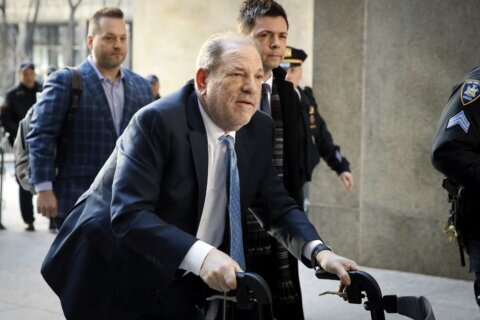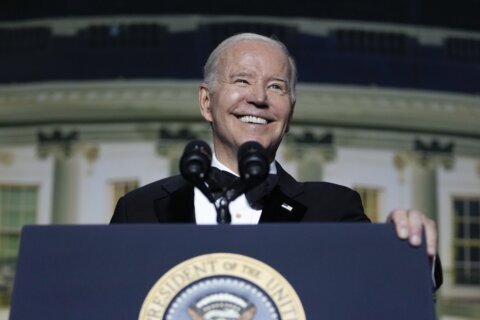NEW YORK (AP) — The federal judge who presided over the jury trial that resulted in an $83 million award to writer E. Jean Carroll for her defamation claims against former President Donald Trump said Wednesday that his rejection of his lawyer’s unusual midtrial mistrial request was not a close call.
Judge Lewis A. Kaplan issued a written opinion to explain his swift denial of attorney Alina Habba’s mistrial request, which she made in front of a Manhattan jury as Carroll testified about her instinct to immediately delete death threats she received in emails after the public first heard of her rape claims against Trump.
Habba said a mistrial was in order because Carroll, 80, was confessing that she destroyed evidence that should have been preserved for trial. Generally, lawyers make mistrial requests out of the presence of a jury.
“The motion made no sense,” Kaplan wrote, explaining that Habba had known for more than a year that Carroll had said that she deleted some emails making death threats against her and yet waited until trial to act surprised and request a mistrial. “Granting a mistrial would have been entirely pointless.”
In addition, the judge said, neither Habba nor Carroll’s lawyers managed to elicit from Carroll exactly what she had deleted and for how long. He called their questioning “confusing” and said the record on the subject was left “unclear.” And he said Habba had failed to take any steps to try to recover any deleted materials through other means or to ascertain whether they were emails or social media posts.
Kaplan’s ruling came after a trial in which the judge several times criticized Habba’s skills, including once when he suggested to her that she use a break in the trial to review the rules on how evidence is introduced at a trial. Out of the presence of the jury one day, the judge even threatened to jail her if she didn’t stop talking.
The $83.3 million award by the jury two weeks ago came over statements Trump made while he was president. In statements to the media, Trump denied he had ever sexually assaulted Carroll, claimed he didn’t know her and said she was making up her claims to sell a newly published memoir and perhaps to hurt him politically.
Habba has promised to appeal, saying the day of the verdict that Carroll benefitted from suing Trump in a state “where they know they will get juries like this.”
She added: “It will not deter us. We will keep fighting. And, I assure you, we didn’t win today, but we will win.”
Habba did not immediately return a request for comment on Wednesday.
The jury award — $65 million of which was for punitive damages — was in addition to a $5 million award from a Manhattan federal court jury last May that concluded Trump had sexually assaulted Carroll in a luxury Manhattan department store dressing room in spring 1996 and then defamed her in October 2022. The jury rejected Carroll’s rape claim, though the judge later said what the jury found would be considered rape in other jurisdictions.
Kaplan said in his opinion Wednesday that it was possible that Carroll, rather than Trump, was harmed by the inability to show jurors the death threats.
“With fewer examples to show, Ms. Carroll’s case for damages was weakened, and Mr. Trump benefitted as a result,” Kaplan wrote.
Trump, 77, showed up for the most recent trial and testified briefly, but his testimony was severely limited because the judge had instructed jurors that they must accept the findings regarding sexual assault and defamation by the jury last May as true. Trump did not attend the first trial.
Copyright © 2024 The Associated Press. All rights reserved. This material may not be published, broadcast, written or redistributed.







